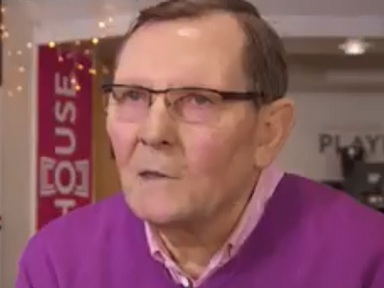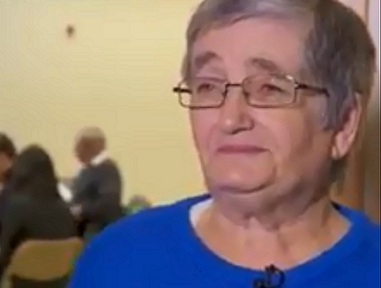'Theatre of hope' festival shines light on 71-year-old playwright with dementia
Seventy-one-year-old Bob Fulcher may have spent his working life as a farmer but he’s proof it’s never too late to make a career change after co-writing his first ever play - eight years after developing dementia.

His play ‘I see land ahead’ is just one of many plays in the Every Third Minute festival; the first ever theatre festival of its kind because it is curated by people with dementia.
'Festival of theatre, dementia and hope'
The name of the festival, which runs from 9 February to the end of March, is inspired by the statistic that every third minute someone in the UK is diagnosed with dementia. Hosted by the West Yorkshire Playhouse in Leeds, the festival has been described by its organisers as ‘a festival of theatre, dementia and hope’.
But developing dementia has not put a stop to Bob Fulchur, who has admitted he’s having the time of his life creating the play.
“Being part of this festival give me a chance to put my message across about how important it is to enjoy life”, he told BBC Breakfast.
“Even though I’ve had dementia for eight years…life’s…life’s great.”
Rosa Peterson also lives with dementia and has been delighted to hear her finished play being read out by actors. The play, ‘A horse called Freedom’ is based on memories from Rosa’s childhood.

“It just proves it you have dementia you can still do things. And I’ve done it.”
As well as introducing the world to budding playwrights with dementia, the festival incorporates the experiences of those who’ve witnessed dementia in others.
Still Alice: from Hollywood screen to Leeds stage
Written by neuroscientist Lisa Genova, the best-selling book ‘Still Alice’, tells the story of linguistics professor Alice Howland who develops early onset dementia.
Played by actress Julianne Moore in the Hollywood film of the same name, the West Yorkshire Playhouse has moved the story from the big screen to its stage on 9 February - 3 March. The new stage adaptation of 'Still Alice' will star actress Sharon Small, who appeared in the BBC’s The Inspector Lynley Mysteries.
Other festival highlights include the tale of world scrabble champion Austin Michaels. Austin used to know over 200,000 words until he was diagnosed with Alzheimer’s Disease. In the play ‘Blank Tiles’ by Dylan Cole, he is now desperate to make sense of his dementia.
Austin Michaels is engaged in a race against time has to document his memories, before they fade. 'Blank Tiles' will be performed at the Barber Studio on 28 February.

The Every Third Minute festival will also celebrate the Edinburgh Fringe sell-out play: ‘The nature of forgetting’ by Theatre Re. It will be performed on 6-9 March at the Courtyard Theatre and will focus on 55-year-old Tom and explore what is left of a person when their memory is gone.
The Every Third Minute festival is far from the West Yorkshire Playhouse’s first collaboration with people living with dementia.
Since opening its doors in 1990, the theatre has had a history of creating dementia-friendly plays for people living with dementia and their families and care workers.
Most of the playhouse’s staff are Dementia Friends who make it easier for those with dementia to attend creative sessions and theatre performances. In 2015, the playhouse received two national awards for its dementia-friendly work, namely: Best Dementia Friendly Project 2015 and Outstanding Innovation in Dementia Care 2015.
Nicky Taylor, West Yorkshire Playhouse Theatre's dementia research associate said: “We hear many stories about caring and grieving for people living with dementia, but we rarely hear stories of people’s experiences of actually living with dementia.
"Every Third Minute is about amplifying those voices and changing perceptions and attitudes, through a far-reaching programme that broadens the narrative of dementia.
"Placing people with dementia in decision-making positions we can challenge the more negative expectations and limitations that can arrive hand in hand with a diagnosis, and instead celebrate their potential and creativity.”
Latest News
 29-Jul-24
Dementia Bus gives carehome.co.uk staff insight into life with dementia
29-Jul-24
Dementia Bus gives carehome.co.uk staff insight into life with dementia
 01-Mar-24
Find out the top care homes in 2024
01-Mar-24
Find out the top care homes in 2024
 21-Mar-23
UK's top care homes in 2023 revealed
21-Mar-23
UK's top care homes in 2023 revealed
 03-Jan-23
carehome.co.uk launches free care helpline
03-Jan-23
carehome.co.uk launches free care helpline
 13-Dec-22
5 mins with Emily Whitehurst, chief operating officer for Constantia Healthcare
13-Dec-22
5 mins with Emily Whitehurst, chief operating officer for Constantia Healthcare